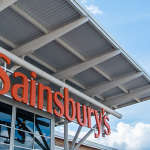The US Department of Justice (DoJ) yesterday afternoon announced that five major banks have made a collective settlement of $5.7bn (£3.6bn) to bring a close to investigations which have seen a raft of firms pick-up work including Gibson, Dunn & Crutcher and Clifford Chance.
Bringing the investigations to a close yesterday was the DoJ’s announcement that four financial institutions, Citigroup, JPMorgan Chase, The Royal Bank of Scotland and Barclays, all pleaded guilty to felony antitrust violations, and agreed to pay criminal fines totalling more than $2.5bn – the largest set of antitrust fines ever obtained in the US. The fifth, Swiss bank UBS which is represented by Gibson Dunn, will plead guilty to rigging benchmark interest rates and will pay $545m.
The quintent plus Bank of America also reached a $1.8bn settlement with the Federal Reserve Board regarding its investigations while there were also settlements with the Commodity Futures Trading Commission and the New York State Department of Financial Services.
Represented by Clifford Chance during the investigations, Barclays was fined the most and agreed to pay a combined total of £1.5bn. The fines imposed are covered by existing provisions of £2bn, including those taken by Barclays in its Q1 2015 results. It was further announced by the UK’s Financial Conduct Authority (FCA) that it has imposed a £284m fine on Barclays for ‘failing to control business practices in its foreign exchange business in London’, constituting one of the largest financial penalties ever imposed by the FCA or its predecessor the Financial Services Authority.
Mandates that have so far arisen in the UK regarding Forex probes include for Freshfields Bruckhaus Deringer, Stephenson Harwood and Travers Smith. Freshfields is advising Deutsche Bank while Stephenson Harwood litigation partners Tony Woodcock and Sara George are representing individuals working for financial institutions in connection with the scandals.
Travers, meanwhile, was appointed in March 2014 to review the Bank of England’s conduct in the affair, with Lord Grabiner QC appointed by the bank’s oversight committee to run an independent assessment of its actions.
It follows the settlement made by other banks with the FCA in November for failure to stop traders from foreign exchange market rigging, in which HSBC, Royal Bank of Scotland, and US banks JP Morgan Chase and Citibank, were all collectively fined.
However, the settlement is likely not to be the end of the saga with the conclusion of illegal activity now potentially generating forex-related claims in the UK that are predicted to significantly outweigh those relating to Libor-rigging.
Simon Hart, RPC banking litigation partner, said: ‘[The] settlement is likely to spark yet further civil litigation against the banks, particularly from pension funds and other money managers that have suffered losses on Forex trades as a result of the market manipulation.’
‘Legally it will be much easier to bring a civil claim against a bank for Forex manipulation than for Libor manipulation. The short term and one-off nature of Forex trades means it will be far easier for firms to prove that they lost money on particular trades during a period one of these banks was manipulating the market. If a firm aggregates all those trades where losses were suffered, the numbers could well be significant.’
sarah.downey@legalease.co.uk












